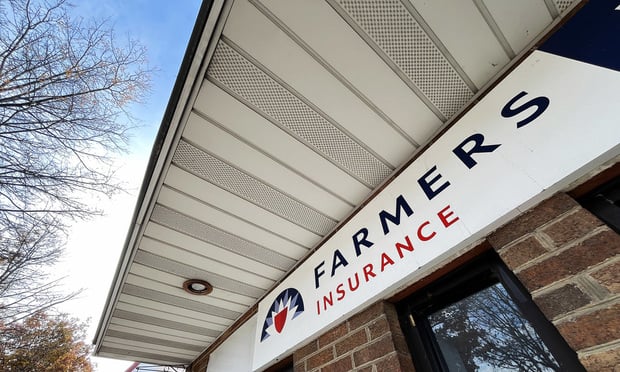 Franchise ownership is on the rise, making the niche a good growth opportunity for independent agents and brokers. But experts warn that the need to intimately know and understand the client's business is even more critical when placing coverage for franchises, associations or affinity groups.
Franchise ownership is on the rise, making the niche a good growth opportunity for independent agents and brokers. But experts warn that the need to intimately know and understand the client's business is even more critical when placing coverage for franchises, associations or affinity groups.
“Many franchises and association program attempts fail, most often due to a lack of identifying the real needs and wants of the members,” said Vincent Stazzone, executive vice president of Williams and Stazzone Insurance Agency, which specializes in franchise systems and trade associations in the automotive and food and beverage industries.
State of the Market
In spite of a rocky economy—or perhaps because of it—the number of U.S. franchise establishments in 2012 increased for the first time since the outset of the Great Recession in 2008, according to the International Franchise Assn. (IFA)'s “Franchise Business Economic Outlook for 2013.” And the forecast is bright: The report projects that the number of U.S. franchise establishments will increase by 1.4 percent in 2013, just short of 2012's 1.5 percent growth, going from 746,828 to 757,055 businesses.
Successful franchise operations include internationalization (more than 400 U.S. franchise systems operate internationally, topped by Subway, McDonald's, KFC and The Wendy's Co.) and the growth of women and minorities as franchisees.
The trend could be a harbinger of better economic times. “Franchising, association participation and affinity groups tend to thrive in a growing economy,” said George Hill, chairman of NIF Insurance Services of California, Sacramento. “Membership typically requires a financial commitment, which is often eliminated when business drops. Also, it's easier to gain momentum in creating an association, affinity or franchise through the Internet because communication is so easy.”
Franchising is a big and growing business, but franchisees can face significant hurdles, the biggest of which is difficulty acquiring startup loans to purchase a business. Although the IFA study shows a slight improvement, 52.9 percent of franchisees cited the lack of small business lending as having a negative impact on their businesses, compared with 55.5 percent a year ago.
Add to that challenges and delays in the SBA approval process, Stazzone said.
The franchise business is a double-edged sword: standardized products and processes streamline the business, but franchisors require franchisees to strictly adhere to their rules, which can be restrictive.
Other challenges for both franchisors and franchisees include the lagging economy, increasing payroll and income taxes, and the rising cost of healthcare and fuel.
The Impact of ACA
Another top concern is implementation of the Affordable Care Act, with 20 percent of franchisors and 31 percent of franchisees citing it as their top concern, according to the IFA study.
Seth B. Madnick, managing principal, programs group for San Ramon, Calif.-based EPIC, said his company educates clients on ACA's impact via seminars and webinars. The agency, which specializes in restaurant/hospitality, with a program niche business in burger and pizza chains, offers owners a calculator that assesses the financial impact of paying the federal penalty or providing the ACA-mandated health coverage.
And particularly in rough times, the cost of insurance itself can be daunting for new franchisees, because costs are rising along with operating expenses like energy and supplies, Madnick said.
For all these reasons, it's essential for agents and brokers specializing in franchises or affinity groups to intimately understand the unique and specific requirements of their customers to tailor the appropriate protection.
“His or her credibility and commitment is essential,” Hill said. “You always need to know what makes the association or affinity tick: What makes their membership come to them? Can an insurance product bring value, either in rate, loss control or other services?”
Hill speaks from experience. NIF began specializing in affinity groups in 1991 with swimming pool contractors and affiliated sub-trades, then gradually expanded to include a dozen or more classes. Contractors are a specialty, and each contractor class—electrical, HVAC, plumbing, swimming pool contractors—is an affinity group itself. NIF has insured nonprofits for 5 years and has affinity relationships through retailers with state associations and national associations such as Goodwill.
Deep knowledge of these classes drives coverage as well as expansion into related niches. For example, NIF's construction experience led it to identify specific trades with shorter-tail liability and focus on small- to medium-sized contractors who might be underserved in the marketplace, Hill said.
Building a Team
Educating yourself will go a long way—a background in underwriting, program administration and account management is especially useful, said Madnick, who has both an underwriting background and has practiced corporate and regulatory insurance law.
An effective way to know the business is to build a team with key contacts. In 2002, Madnick worked with a group of California McDonald's franchise owners to develop and implement a group captive for workers' compensation coverage. His team consists of the program administrator and underwriting manager for the captive program called the Preferred Operator Group (POG).
Now in its 11th year, POG has grown to 650 restaurants. Such collaboration allows franchise owners to share valuable resources for preventing losses, workplace safety and managing claims.
After building a team, “most producers either build a book of business with a group of franchise owners, or obtain the endorsement of the franchisor to bring a value-added coverage program to the franchise owners” Madnick said.
Dan Rossen, head of Burns & Wilcox's brokerage group, takes a similar approach with the firm's real estate franchise specialty. In New York, he works with a Fortune 500 real-estate firm that has grown from zero to 60 franchise offices during the last 3 years.
The firm ensures that the franchisor has proper coverage, then assembles a list of requirements needed by franchisees to qualify for insurance.
Other typical coverages include workers' compensation, general liability, auto, business interruption, EPL, umbrella liability, non-owned and hired auto liability, flood/wind/earthquake, commercial general liability, E&O and professional liability.
Franchisor professional liability insurance can protect against franchisee claims regarding breach of contract, breach of duty of fair dealing, negligent misrepresentation and unjust enrichment. Also consider personal guarantee insurance for business loans, which protects franchisees' personal assets if their businesses are liquidated.
Media liability coverage can protect franchisors who promote their businesses on TV and social media, Rossen said. “A franchisor talking on Fox News may say the wrong thing and end up in trouble,” he said. “Cyber liability and general liability alone may not cover the damage.” (Papa John's Pizza CEO John Schnatter's outbursts about Obamacare, for one, come to mind.)
Another example is the rivalry between automakers Fiat and Volkswagen, in which Fiat CEO Sergio Marchionne, who also runs Chrysler Group LLC, is offering $1,000 rebates to current VW owners in the U.S. who agree to buy a Fiat or Chrysler vehicle. “If you're a franchise dealer of those cars, you could be subject to media liability exposures,” he said.
The Carrier Connection
Although most major insurers are willing to underwrite this class of business, it's contingent on a strong relationship and understanding of the client. “Surveying the membership is key,” Stazzone said. “Otherwise, everyone—the agent, the carrier and the association/system—can wind up wasting a lot of time and money developing products that do not go anywhere…Insist on the proper research being done upfront.”
However, good program business won't go begging for placement. “Most carriers offer some form of program, or affinity group, underwriting facility,” Hill said. “When Target Markets Program Administrators Assn. (TMPAA) started about 12 years ago, only a few carriers were looking to write business in this way. Today there are dozens, each specializing in specific classes or coverages.”
Madrick works with Travelers (formerly Discover Re) on its McDonald's group captive and Fireman's Fund on its pizza coverage. Other carriers in the franchise food marketplace include Arch, CNA, Zurich, Allied and Scottsdale.
Finding a niche that works for you, then participating in trade groups and getting experience in that specialty can position an agency or brokerage of any size to successfully compete for the business, Stazzone said. “At the end of the day, our goal is being viewed as a value-added service,” he said. “Existing franchisees want to know that their franchisor is continuing to enhance the benefits of being part of the system. Prospective franchisees need to believe there is real value before joining a system. This works the same for dues-paying members of an association. A good insurance program can play a small role in helping.”
Want to continue reading?
Become a Free PropertyCasualty360 Digital Reader
Your access to unlimited PropertyCasualty360 content isn’t changing.
Once you are an ALM digital member, you’ll receive:
- Breaking insurance news and analysis, on-site and via our newsletters and custom alerts
- Weekly Insurance Speak podcast featuring exclusive interviews with industry leaders
- Educational webcasts, white papers, and ebooks from industry thought leaders
- Critical converage of the employee benefits and financial advisory markets on our other ALM sites, BenefitsPRO and ThinkAdvisor
Already have an account? Sign In Now
© 2024 ALM Global, LLC, All Rights Reserved. Request academic re-use from www.copyright.com. All other uses, submit a request to [email protected]. For more information visit Asset & Logo Licensing.








